Opioid abuse is prevalent in the United States and continues to disrupt the lives of millions of American households. Prescription drug abuse is prominent and problematic as a gateway to street drugs and because of accessibility. People often unintentionally develop a dependency on prescription drugs. Popping a pill does not have the same stigma as other methods of abuse but can be just as dangerous and as likely to lead to an addiction.
Our addiction treatment and recovery center proudly serves a wide range of clients. We offer opioid rehab in Athens, GA for individuals from all walks of life. Our focus on continuing care means that clients are always welcome to connect with Athens Recovery down the road if you are struggling in recovery. We will always be here to help you on your journey towards a rewarding and meaningful sober life. Reach out to us today at [direct] to speak with a representative about the risks associated with opioids and to learn more about our personalized treatment plans.
Side Effects of Opioids
Awareness of the side effects of opiates is important since changes in someone’s behavior or activity may be developing tolerance or a dependence on opioids.
Common side effects of opioids include:
- Heavy sedation
- Constipation
- Dizziness or vertigo
- Nausea
- Vomiting
- Slowed heart rate
- Respiratory depression
Slowing down your breathing and heart rate can result in dangerous complications even for those who appear physically healthy. This is especially true if someone is taking high doses of opiates. People with asthma, COPD, and other lung conditions are at increased risk for negative consequences.
Over time, the use and abuse of opiates can lead to tolerance and dependence. This fuels the cycle of abuse that leads to addiction.
Signs a person is developing tolerance and a dependence on opiates include:
- Tolerance
- Withdrawal symptoms
- Cravings
- Taking more medication than prescribed
- Seeking more opioids or drugs to avoid withdrawals
Less common side effects may include:
- Increased sensitivity to pain
- Weakened immune system
- Hormone imbalance
- Muscle rigidity
- Muscle spasms
- Tremors
- Arrhythmia
- Itchy skin
Long-Term Opioid Abuse
Chronic opioid use and abuse results in additional problems and health complications. Common issues that can result from long-term abuse of opioids may include:
- Increased risk of overdose
- Cognitive impairment
- Brain changes, including mood instability
- Chronic constipation
- Liver damage
- Development of sleep disorders
- Development of breathing disorders
- Increased risk of fracturing or breaking bones
- Impaired recovery from injury and surgery
- Obstruction of normal breathing over time can lead to irreversible brain damage
Medication Interactions
It’s important to keep in mind that many other medications and supplements can interact with opioids in ways that are problematic. Examples of potential negative interactions can occur when opioids interact with:
- Alcohol
- Marijuana
- Anti-seizure medications
- Benzodiazepines (benzos)
- Sedatives
- Antibiotics
- Antidepressants
- Antifungals
- Antiretroviral medications
- Sleep disorder medications
- Medications that help control psychosis
- Muscle relaxants
- Medications used to treat nerve-related pain and epilepsy
Signs of Prescription Drug Abuse and Addiction
An individual who has developed an addiction to prescription painkillers, opiates, or other prescription medications may show some of the following signs and symptoms:
- Excessive fatigue
- Changes in appearance
- GI issues
- Relationship issues
- Social isolation
- Poor coordination
- Lack of interest in activities
- Work problems
Commonly abused painkillers include:
- Hydrocodone (Vicodin)
- Oxycodone (Percocet)
- Hydromorphone (Opana)
- Fentanyl
Contact Athens Recovery Today about Rehab Treatment Options
If a loved one is struggling with opiate abuse, painkiller abuse, or prescription drug abuse, early intervention is always best. Keeping that in mind, it’s never too late to find lasting recovery. Medically-supervised detox is the safest way to break the cycle of abuse. At Athens Recovery, we offer a range of treatment options to help our clients get their lives back on track. Reach out to us today at 844.959.4998 to speak with a trained representative who can tell you more about our personalized services.

